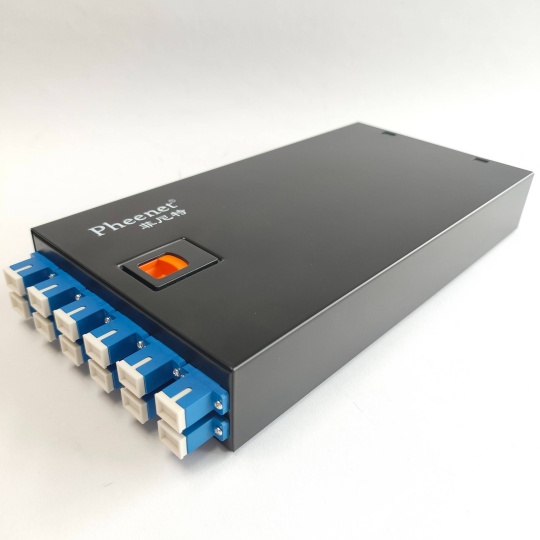Key Considerations For Industrial Cable Assemblies in AGV Systems
Automated Guided Vehicles (AGVs) represent a cornerstone of modern industrial automation, driving efficiency in logistics, manufacturing, and warehousing. While navigation systems, batteries, and control software often capture the spotlight, the unsung heroes enabling reliable AGV operation are industrial cable assemblies. These critical components ensure power delivery, communication integrity, and sensor data accuracy amidst demanding operational environments. Selecting and designing the right cable assemblies is paramount for AGV performance, uptime, and safety.
Here are the key considerations for choosing and designing cable assemblies specifically for AGV applications:
- Extreme Flexibility & Continuous Flexing Life: AGVs are constantly on the move. Cables experience repetitive bending, twisting, and motion – especially at key points like the rotating turntable or undercarriage connections.
- Requirement: Cable assemblies must utilize specialized continuous flex cables designed explicitly for millions of flex cycles without conductor breakage, insulation cracking, or shielding degradation.
- Design: Incorporate tightly stranded, fine-gauge copper conductors optimized for dynamic flex. Cable jackets should be made of high-performance, flexible thermoplastics or TPU/PUR that resist cold flow and maintain integrity. Proper strain relief at connectors is critical.
- Robust Resistance to Mechanical Stress:
- Abrasion: Cables often drag against floors, structures, or themselves.
- Crushing/Impact: Risk from collision or accidental run-over by other vehicles or loads.
- Cutting/Pinching: Vulnerable at pinch points between AGV components or guide rails.
- Requirement: Heavy-duty jacket materials with superior abrasion resistance (e.g., TPE, PVC blends, PUR) are essential. Armored cables (e.g., with braided steel or synthetic fiber) or strategically placed cable carriers/conduit offer vital protection against crushing and impact damage. Minimizing exposed cable runs helps mitigate pinching risks.
- Vibration and Shock Resistance: AGVs operate on potentially uneven floors, traverse transitions between surfaces, and may handle heavy loads, generating significant vibration and shock loads.
- Requirement: Cable assemblies must withstand sustained vibration and repeated shock events without internal conductor breakage, connector disconnection, or degradation of insulation. Components must be resistant to material fatigue.
- Design: Secure mounting points using vibration-damping clamps or carriers. Employ cable cores optimized for vibration (e.g., extruded cores or fillers to prevent conductor migration). Choose ruggedized connectors with positive locking mechanisms (e.g., M12/M8 connectors with locking screws or push-pull) that maintain connection integrity under vibration.
- EMI/RFI Shielding Performance: AGVs are dense electronic environments. Motors (especially brushless DC), drive controllers, battery chargers, and wireless communication systems emit significant electromagnetic interference (EMI).
- Requirement: Cable assemblies require effective shielding to protect sensitive data and control signals (Ethernet/IP, CANbus, DeviceNet, analog sensors) from corruption.
- Design: Utilize high-coverage braided shields (often >85%) or optimized foil/braid combinations for critical data lines. Ensure 360-degree termination of shields to robust connector backshells designed for effective EMI grounding. Shielded connectors are typically essential.
- Environmental Protection:
- Contamination: Exposure to dust, dirt, metal chips, oil, coolant, and cleaning chemicals is common in industrial settings.
- Moisture: Spills, washdowns, or high humidity can occur.
- Temperature: Operation in refrigerated warehouses, near ovens, or in hot factory environments requires wide temperature tolerance.
- Requirement: High Ingress Protection (IP) ratings (e.g., IP67, IP69K) are standard necessities. Materials must resist oils, chemicals, and UV degradation. Wide operating temperature ranges (e.g., -40°C to +90°C or higher) are crucial.
- Design: Select seals, connectors (rated for IP67/69K), jackets, and cable fillers formulated for harsh chemical exposure and temperature extremes. Sealed connectors are non-negotiable.
- Power Handling & Voltage Drop:
- Requirement: Power cables must deliver sufficient current to drive motors efficiently without excessive voltage drop leading to motor overheating or performance loss. Safety margins are critical.
- Design: Calculate voltage drop accurately over the entire cable run length, considering peak motor currents. Size conductors appropriately to minimize resistive heating and voltage drop. Use reliable, high-contact-force power connectors rated for the required current.
- Cable Management & Routing:
- Requirement: Cables must be routed to avoid entanglement with loads, other vehicles, or infrastructure. They need freedom of movement without strain, particularly where the AGV articulates (turntables, lifts).
- Design: Plan routing paths carefully using robust strain relief systems and guides. Employ energy chains/carriers at articulation points to manage flex cycles effectively. Use service loops to accommodate full range of motion without pulling on connectors.
- Safety & Compliance:
- Requirement: Ensuring personnel safety is paramount. Cables must avoid creating trip hazards. Power and data segregation prevents interference and potential hazards. Adherence to relevant safety standards (e.g., ISO 13849 for functional safety, potentially IEC 62133 for batteries) is mandatory. Flame-retardant cable jackets are essential (e.g., meeting UL VW-1, IEC 60332).
- Design: Implement physical segregation or use shielded cables where necessary. Use bright jacket colors for visibility when appropriate. Ensure connector housings and cable jackets meet required fire safety ratings.
- Maintenance & Serviceability:
- Requirement: Downtime is costly. Cable assemblies should facilitate rapid diagnostics and replacement.
- Design: Utilize modular cable designs with accessible connectors. Employ quick-disconnect systems where feasible. Clear cable labeling aids troubleshooting. Standardization across the AGV fleet simplifies spares management.
Conclusion
Industrial cable assemblies are fundamental determinants of AGV reliability, longevity, and efficiency. Viewing them as mere commodity components is a costly oversight. Investing in assemblies meticulously designed for the specific rigors of continuous flexing, mechanical stress, EMI exposure, and harsh industrial environments directly translates into higher AGV uptime, reduced maintenance costs, safer operation, and enhanced overall system performance. Partnering with a cable assembly provider experienced in the demanding requirements of mobile automation, like AGVs and AMRs, is essential for maximizing the return on your automation investment. Selecting the right cable is not just about connection; it’s about ensuring your AGVs operate smoothly, mile after mile.











